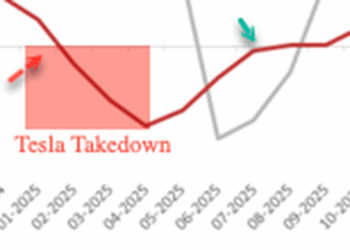The Conference of the Parties (COP30) to the United Nations Framework Convention on Climate Change (UNFCCC) will take place November 10 to 21, 2025, in Belém, Brazil with an expected attendance of 70,000 people.
Across the world, political leaders and environmental activists proclaim that renewable energy will soon replace fossil fuels and usher in a cleaner, sustainable future. Yet few of them can explain how wind turbines and solar panels, which only generate electricity, can sustain the vast web of products and materials upon which human civilization depends. This blind faith in renewables has become what can only be called a green delusion.
Electricity may run our computers, light our cities, and power our vehicles, but it cannot create the raw materials needed to build those very machines.
Steel, cement, plastics, fertilizers, and pharmaceuticals all require hydrocarbons—not simply as fuels but as essential feedstocks. Oil, natural gas, and coal are the molecular foundations for more than 6,000 everyday products that define modern life. Without them, hospitals would lack sterile equipment, farmers would have no fertilizers, and the construction of roads, bridges, and homes would grind to a halt.
This misunderstanding, treating electricity as interchangeable with materials, is the central flaw of the green movement. Electricity is a utility, not a substance. It drives processes but cannot make things. Even basic metals like iron and copper require carbon as a reducing agent during smelting. Without carbon, humanity would lose the very means of transforming minerals into usable materials.
Meanwhile, governments pour trillions of dollars into policies designed to eliminate fossil fuels, without considering the economic or physical realities. In California, for example, leaders boast about renewable progress while importing electricity from neighboring states that rely on natural gas and coal. Blackouts, surging prices, and industrial flight are the inevitable consequences of this ideological experiment.
The same contradiction appears globally. Electric vehicles (EV) are celebrated as zero-emission solutions. However, their manufacturing process depends heavily on fossil fuels—from the mining of lithium and cobalt with diesel-powered equipment to the production of steel, glass, and plastic components derived from hydrocarbons. The result is more ways to use fossil fuels, which is carbon shift, not carbon elimination.
Government-chosen winners and losers are only applicable to those few in the wealthier countries that can afford huge subsidies, but the reality is that there are no silver bullet answers.
For those outside the few wealthy countries, we see that at least 80 percent of humanity, more than six billion people, are living on less than $10 a day, and billions are living with little to no access to electricity,
These green ideologies are 100 percent political in the few wealthy countries that can afford to subsidize their delusions! Examples of the “green” delusion:
- The “green” mandates for transitioning from ICE vehicles to EVs would only eliminate gasoline used in ICE vehicles, which is only 1 of the more than 6,000 products made from fossil fuels. The EV, like the ICE vehicle, continues to be 100 percent made from those oil products, inclusive of tires, computers, wiring and insulation, and all the electronics of those so-called “zero emissions” vehicle.
- None of the green illusionists can explain how wind turbines and solar panels can make any of the other 5,999 products produced from oil that we see in hospitals, airports, offices, shopping centers, data centers, etc.
The “green” ideological transition to renewables is a global suicide pact for the rest of us! Conversations are desperately needed, but the following points summarize their “explanation shortcomings.”
- Their zero-emission movement is a delusion that electricity generated from wind and solar can replace refineries and the crude oil that they process to support the variety of the more than 6,000 products and fuels in our materialistic society that did not exist 200 years ago.
- They also remain oblivious that underground hydrocarbon resources of coal, crude oil, and natural gas are totally useless unless processed into something useful to meet the demands of humanity. Modern society requires these products, but they are incapable of identifying the substitutes for fossil fuels to provide the supply chain source for those products.
- They cannot explain how wind and solar can support the 50,000 merchant ships, 20,000 commercial aircraft, 50,000 military aircraft, and more than 300 cruise ships that did not exist 200 years ago, before those fossil fuel products were developed.
- They cannot comprehend that ALL electricity, from hydro, coal, natural gas, nuclear, wind, and solar come AFTER oil, as all the parts and components to produce electricity are made from fossil fuels.
The path forward cannot be dictated by a centralized global plan that seeks to control the generation of electricity and economies from the top down. Each nation must be free to advance policies consistent with its own history, culture, and material realities, cooperating through mutual respect rather than imposing conformity. Humanity must rediscover balance between progress and preservation, between innovation and responsibility, and between global ambition and local reality. That balance must also guide how nations and governments pursue electricity transitions in practice.
However, many governments, in their rush to appear green, often subsidize uneconomic projects, distorting markets and burdening taxpayers. The lesson is not that innovation should stop—it should continue vigorously—but that technology must mature before being imposed by government mandates and propped up with subsidies. Engineering progress cannot be legislated into existence by politicians.
For the COP30 attendees in Brazil that do not comprehend that electricity generated from wind and solar will negatively impact humanity, they’d best provide answers to the more than eight billion on this planet as to how electricity from wind and solar can support the supply chain of more than 6,000 products and transportation fuels to keep operating our hospitals, airports, militaries, offices, and data centers. COP30 should serve not as a forum for ideology, but for rediscovering a proper balance between humanity’s needs and nature’s limits.
In summary, true climate progress begins not with mandates, but with understanding what energy can and cannot do and respecting the relationship between ambition and reality.
Please share this information with teachers, students, and friends to encourage Energy Literacy conversations at the family dinner table.
The Article was originally published at the AmericaOutLoudNews.Org

















